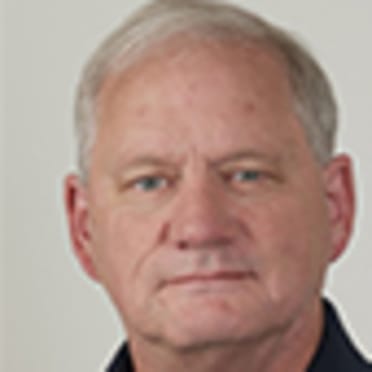Jackie taught Charley Pride to dream
Country music legend, part-Rangers owner and 'absolute treasure'
This story was originally published on April 14, 2020. Pride passed away in Dallas on Dec. 12, 2020, of complications related to COVID-19. He was 86 years old.
ARLINGTON -- When Jackie Robinson reached the Major Leagues with the Dodgers in 1947, he gave hope and a dream to a 13-year-old son of a poor sharecropper in the Mississippi Delta.
"Every kid has a dream, and mine was to be a Major Leaguer," Charley Pride once said in an interview with MLB.com. "When I saw Jackie Robinson go to the big leagues, I knew that was my way of getting out of the cotton fields.”
Pride never did reach the Major Leagues as a player, but he did get out of the cotton fields. After playing in the Negro Leagues and in the Minors, Pride traded in his mitt for his guitar and became a country music legend.
He also came to Spring Training and worked out with the Rangers before every season. The tradition dated back to when the Rangers first came to Texas and held Spring Training in Pompano Beach, Fla., in 1972, and it continued after he was included in the Ray Davis-Bob Simpson ownership group that bought the team in 2010.
“Charley is an absolute treasure,” Rangers general manager Jon Daniels said. “He’s legendary for his clubhouse concerts, where his ability to get guys to laugh is on par with his singing. But the best part about his visits are the stories he tells and the one-on-one conversations. His experiences are so unique, yet he remains so humble.”
Former Rangers manager Ron Washington said Pride’s annual Spring Training concerts played a role in the club’s success when they went to back-to-back World Series in 2010 and '11.
“His inspiration will never be forgotten,” Washington said. “I thought it was the coolest thing in the world for him to suit up in our clubhouse, or those days when he would just sing to our guys. That type of atmosphere brought us together -- it really did. He did it every year and that’s why, after my second year, my group of guys came together as a whole.”
Just like Robinson, Pride was a pioneer who broke barriers in the music industry. Baseball had a part in that.
In 1960, Pride played for the Missoula Lumberjacks in the Class D Pioneer League but was released after three games. He went to work in construction in Helena, Mont., pitched semi-pro baseball and sang in local nightclubs. It was there that Pride drew the attention of people who would point him in the direction of Nashville to launch a career in country music.
He did so as an African American in a white-dominated music genre. Though the color of his skin was different, his voice soared to new heights, especially after becoming the first African American to become a member of the Grand Ole Opry. He had 29 No. 1 hits, 12 gold albums and is in the Country Music Hall of Fame.
"No one had ever told me that whites were supposed to sing one kind of music and blacks another," Pride told MLB.com. "I sang what I liked in the only voice I had.”
He held the annual clubhouse concert with the Rangers in March 2020, just before Spring Training was shut down because of the COVID-19 pandemic.
“He has such a great aura about him, such positivity,” outfielder Joey Gallo said. “It’s really cool. In the beginning, my first few times in big league camp, he didn’t know my name. Now, he’ll say, ‘Hey Joey, how are you doing?’ and talk to me a little bit. It’s pretty cool. I feel like I’ve moved up the ranks with Charley.”
Texas third-base coach Tony Beasley and Pride share the same love for music and baseball. Beasley, an African American who has spent 30 years in the game, also has a gifted singing voice and, like Pride, has performed “The Star-Spangled Banner” before multiple Rangers games.
While Beasley didn’t really know Pride before coming to work for the Rangers, he has since developed a deep and personal admiration for who Pride is and what he stands for in American culture.
“He chose to fulfill a dream that no one of color was participating in,” Beasley said. “At least everyone wanted to play MLB, but no blacks were pursuing country music. So he did the unthinkable. He tells of how he could sing and entertain whites but not eat in their restaurants or use their bathrooms.
“Most importantly though, for me, is when you have the personification of love and joy, people can’t help but eventually return that. I think that tells a deeper story of Charley Pride.”
